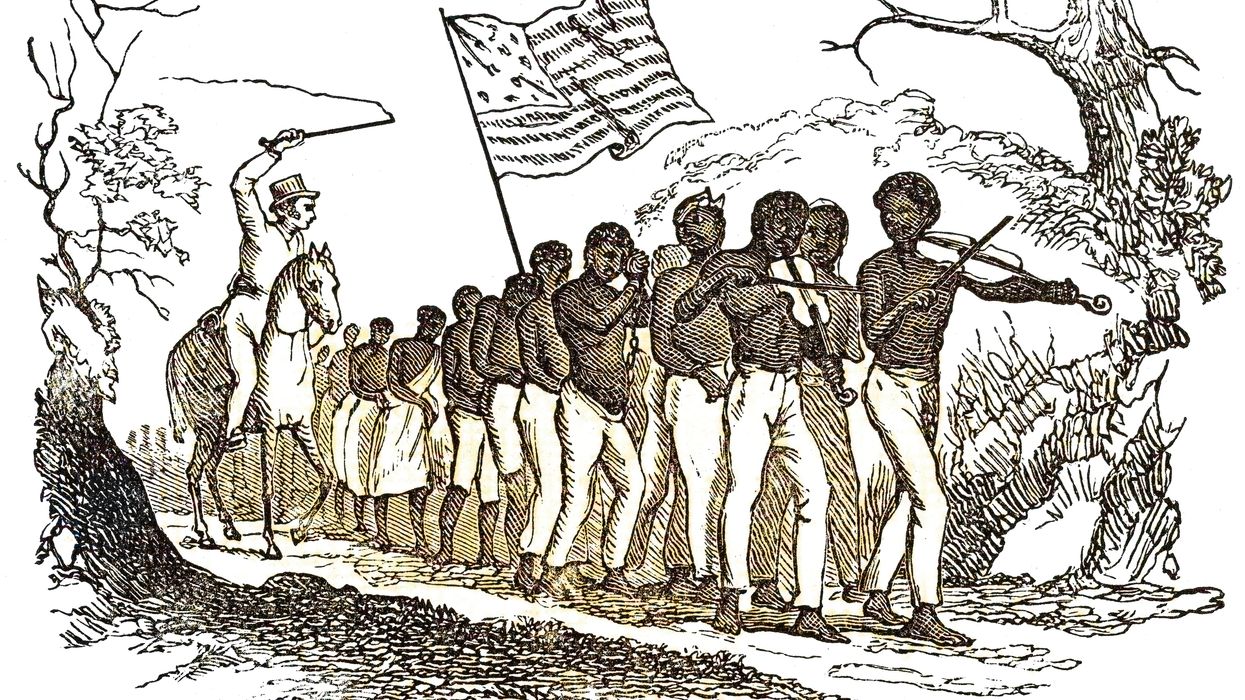Anderson edited "Leveraging: A Political, Economic and Societal Framework, " has taught at five universities and ran for the Democratic nomination for a Maryland congressional seat in 2016.
America struggles to this day with the reality that there is a striking contradiction at the heart of the founding of our country. The founding fathers and men and women who fought in the Revolutionary War (or War of Independence) stood for a nation that was free from economic exploitation, political domination and physical brutality, but the new country, notably the Constitution, supported the institution of slavery.
It is also true that the new nation did not give equal political rights to non-property owning White males, denying them (and women, of course) the right to vote. But the slavery of Black people was the most egregious form of oppression – and contradiction.
Even if the colonists had not fought the British for independence, there still would have been a contradiction among the Americans. Southern slaves would have continued to be slaves and many northern Black people would have continued to remain free. The founding fathers did not establish the institution of slavery. They perpetuated it.
Yet there was a second element to the historic contradiction. Moving to North America was not sufficient for the colonists to gain their independence (although it did grant them some freedom) Led by John Adams especially but also by Thomas Jefferson, George Washington, James Madison and James Monroe, the revolutionary generation fought a war to achieve freedom from the British crown – for certain people.
The contradiction at the heart of the new nation therefore had two aspects that were subtly related: a) For over 150 years the colonies, especially in the South, had people who were free and people who were enslaved; and b) fighting a war to achieve political and economic freedom from Great Britain was in contradiction with the concept of having some people remain unfree.
It was still an open question what kind of nation the colonists would create if they won the war. Indeed, there was a natural bias towards having a monarch in the new nation because all nations had monarchs. The colonists needed to achieve a major breakthrough in Philadelphia and craft a new system in which there would be a president, a Congress and a judicial branch, one admittedly modeled on the writings of Montesquieu in France and Locke in England. Moreover, they could have abolished slavery.
Instead, they chose to meld two contradictions – having a system of slavery in the first place, and fighting a war to achieve freedom while perpetuating slavery – together with a blacksmith's tools.
Perhaps the main point is that actually fighting the War of Independence deepened the contradiction of sustaining a society in which Southern Black people were slaves.
At the same time, the Southern colonies were not fighting the war to preserve slavery, as that was the chief motive for their role in the Civil War. But they did commit to joining the Northerners in 1776 only if slavery would be continued in the new country. And in 1787, the Southern states insisted that the three-fifth rule be included in the Constitution to ensure that they could use the presence of slaves in their individual states to increase their share of members of the House of Representatives.
The clarification of the contradiction at the heart of our nation does not mean we should disown our founding fathers – or our founding mothers. It means we should reach a better sense of national self-understanding about how the heroic actions of the founders led to the creation of a historically vital nation at the same time that it sustained much harm.




















Trump & Hegseth gave Mark Kelly a huge 2028 gift